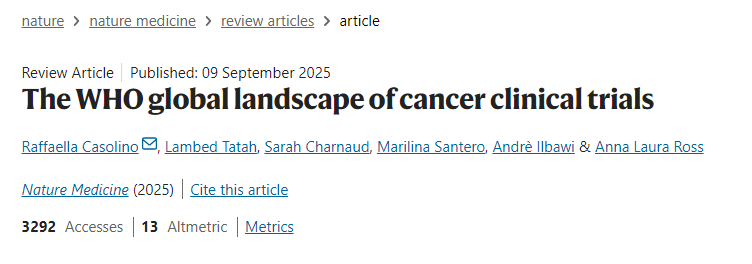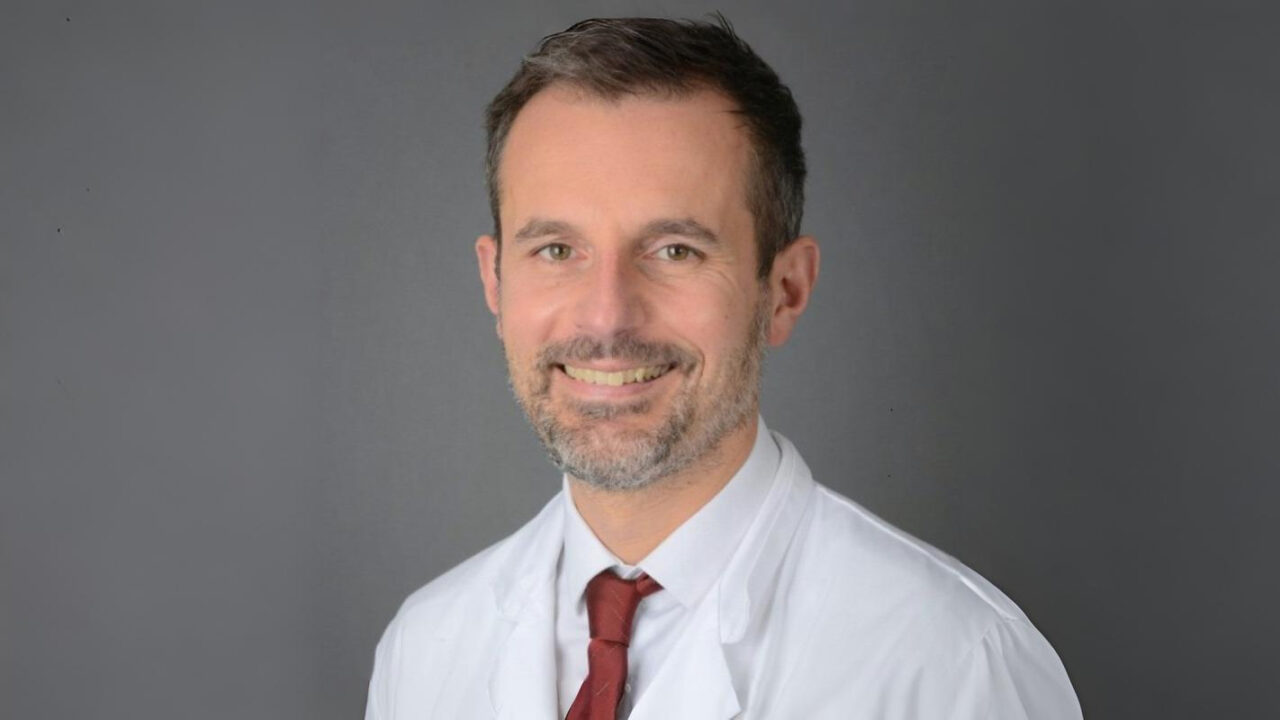Italiano Antoine, Head of Precision Medicine at Gustave Roussy, shared on LinkedIn:
”Global cancer clinical trial landscape: progress and persistent gaps
A new Nature Medicine Review from WHO analyzed 89,069 cancer clinical trials registered worldwide (1999–2022). The findings highlight both achievements and major challenges:
Key Messages:
- Strong growth in trial activity (+207% from 2005–2021), but unevenly distributed.
- High-income countries dominate: 70% of all trials; Africa, Southeast Asia, and the Eastern Mediterranean together host <7%.
- Mismatch with burden: Deadly cancers such as liver, stomach, pancreas, and cervix remain underrepresented, particularly in the regions most affected.
- Underserved populations: Only 3.3% of trials include children, and fewer than one-third target older adults.
- Pharma-centric bias: 61% of trials focus on drugs, while radiotherapy, surgery, diagnostics, and prevention are underfunded.
- Limited collaboration: Just 3% of actively recruiting trials are multinational.
Implications for global oncology:
- Equity gaps risk limiting access to innovation where it is most needed.
- Evidence generated in high-resource settings often does not translate to low-resource contexts.
To close these gaps, WHO calls for:
– Building trial ecosystems in LMICs.
– Aligning research with disease burden.
– Ensuring inclusive recruitment (children, older adults).
– Expanding multicountry collaboration.
– Diversifying interventions beyond drugs.
– Strengthening trial registration and transparency.
This review is a call to action: we must move from growth in numbers to equity, inclusivity, and real-world impact in cancer research.
Title: The WHO global landscape of cancer clinical trials
Authors: Raffaella Casolino, Lambed Tatah, Sarah Charnaud, Marilina Santero, Andrè Ilbawi, Anna Laura Ross

More posts featuring Italiano Antoine.


